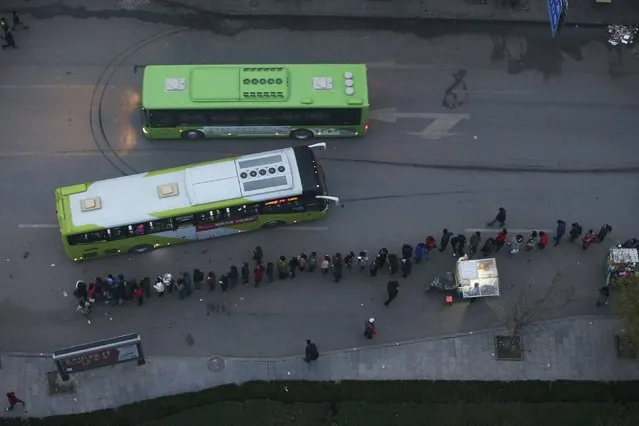
People wait for a bus to take them to Beijing from Yanjiao, Hebei province, China November 13, 2015. Beijing, home to more than 21 million residents, is in the midst of launching itself into a mega-city where 110 million will live, served by new links to the port city of Tianjin and neighbouring Hebei province. Increased traffic has proven a hurdle for Beijing's commuters, while the rising cost of living has pushed many residents farther and farther to the outskirts of Beijing – and beyond. (Photo by Jason Lee/Reuters)
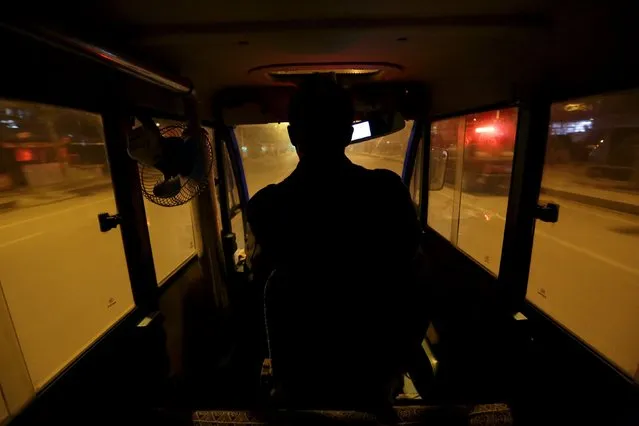
A man who takes commuters from their homes to a bus station in Yanjiao, Hebei province, China drives his electric tricycle November 13, 2015. (Photo by Jason Lee/Reuters)
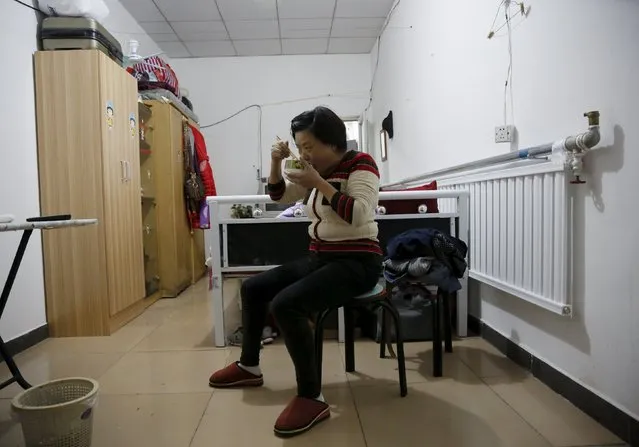
Migrant worker Lai Yongmei, 47, eats her breakfast as she prepares for her daily commute into Beijing, China, November 16, 2015. Yongmei commutes 90 minutes from her village home in the Shunyi district to the Sanlitun neighbourhood to clean corporate offices. Beijing, home to more than 21 million residents, is in the midst of launching itself into a mega-city where 110 million will live, served by new links to the port city of Tianjin and neighbouring Hebei province. (Photo by Kim Kyung-Hoon/Reuters)
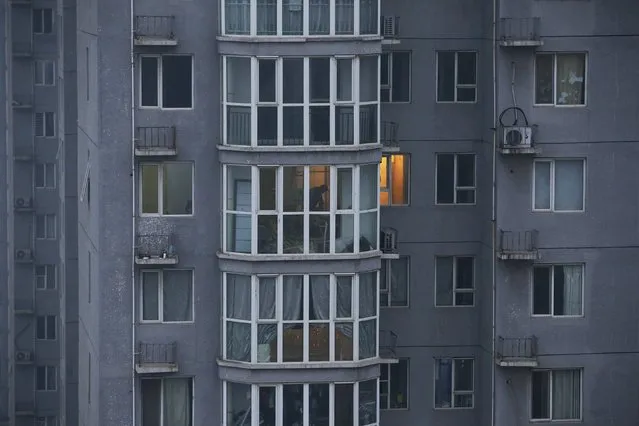
A man is seen inside his apartment in Yanjiao, Hebei province, China, November 13, 2015. (Photo by Jason Lee/Reuters)
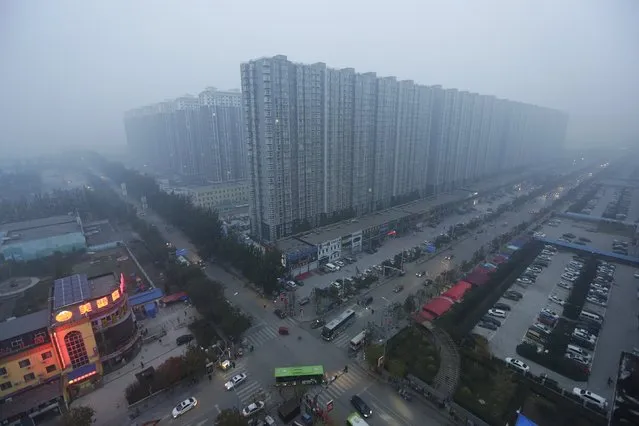
A general view of Yanjiao, Hebei province, China, November 13, 2015. (Photo by Jason Lee/Reuters)
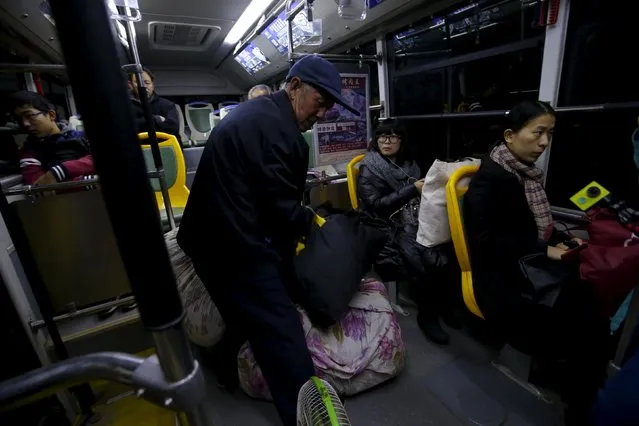
Li Nan (2nd R), a makeup artist, takes a bus on her way to Beijing for work from Tianjin, China, November 18, 2015. (Photo by Jason Lee/Reuters)
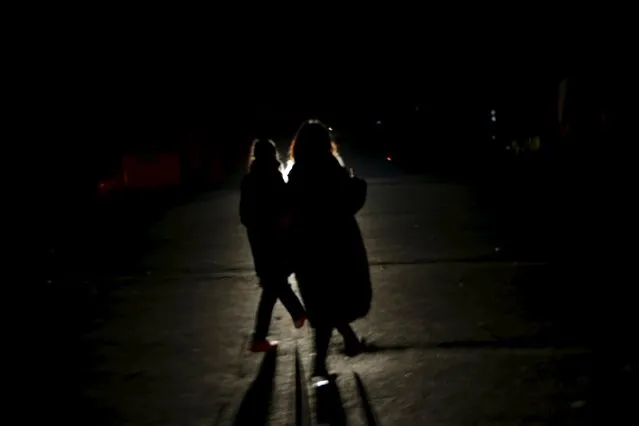
Li Nan, a makeup artist, walks to a bus station with her mother, as she leaves for Beijing for work from Tianjin, China, November 18, 2015. Li wakes up at 5:30am to commute to Beijing, using a combination of bus, high-speed rail, and subway. (Photo by Jason Lee/Reuters)
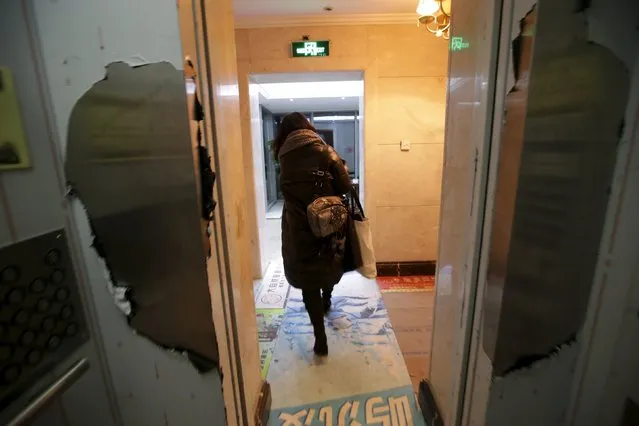
Li Nan, a makeup artist, leaves her home in Tianjin to start her journey to work in Beijing, China, November 18, 2015. "I spend about 100 yuan for transportation every day, but it's worth it," Li said. "I'm living in my own apartment and don't have to pay rent anymore. When I was living in Beijing rent would cost me 6,000 yuan every month". (Photo by Jason Lee/Reuters)
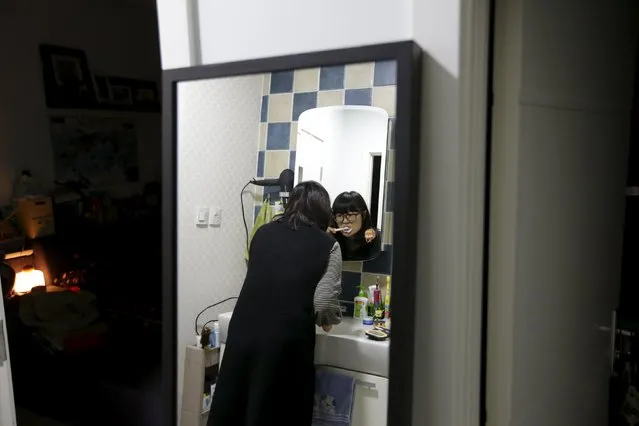
Li Nan, a makeup artist, brushes her teeth at home in Tianjin, before she leaves for Beijing, China, for work, November 18, 2015. Li wakes up at 5:30am to commute from Tianjin to Beijing, using a combination of bus, high-speed train and subway. (Photo by Jason Lee/Reuters)
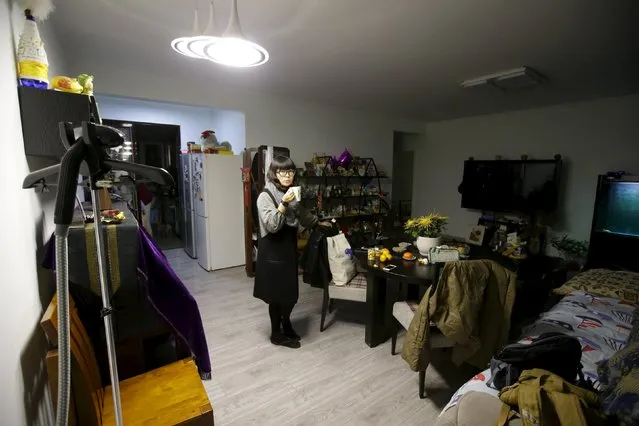
Li Nan drinks tea before she leaves for Tianjin, to commute to Beijing, China, for work, November 18, 2015. Li moved to Tianjin last year to an apartment that she bought for 1.2 million yuan. (Photo by Jason Lee/Reuters)
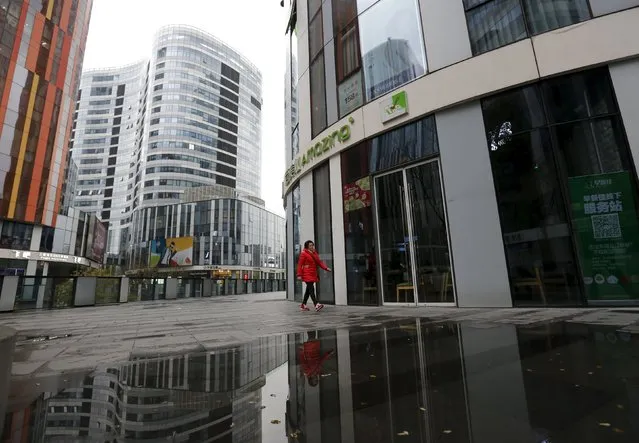
Migrant worker Lai Yongmei, 47, who commutes 90 minutes from her village home in the Shunyi district, arrives at offices in Beijing, China, where she works as a cleaner, November 16, 2015. Yongmei said "”Living in the city is unaffordable. I don’t know how long will I continue to live in this place. We migrant workers don’t usually have (a) renting contract with landlords. So I guess as long as houses in this area are not demolished and no one drives us out, I won’t move anywhere”. (Photo by Kim Kyung-Hoon/Reuters)
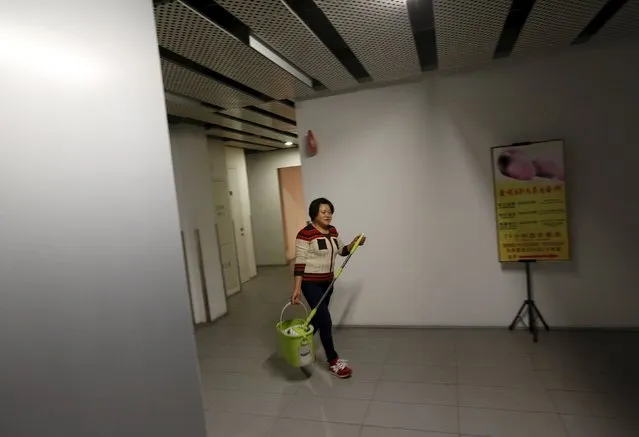
Migrant worker Lai Yongmei, 47, starts work as a cleaner in downtown Beijing, China, November 16, 2015. Yongmei commutes 90 minutes from her village home in the Shunyi district. Yongmei said, “I moved to a village near the airport around 6 years ago. Many people from my hometown live in this village. My husband and I share a room. It’s 700 yuan a month. And for winter, we’ll need to pay 300 extra for heating”. (Photo by Kim Kyung-Hoon/Reuters)
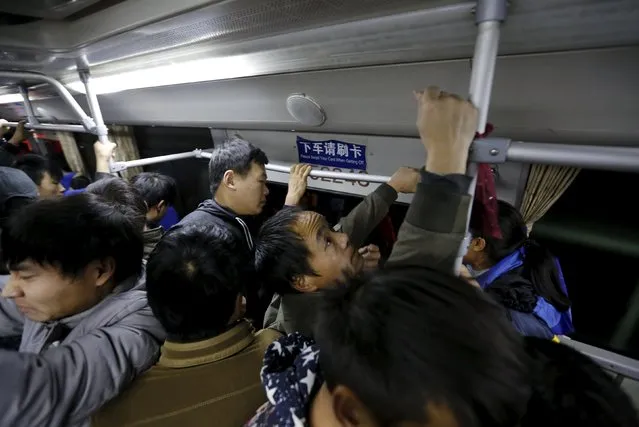
Commuters ride a bus into Beijing, China, November 16, 2015. (Photo by Kim Kyung-Hoon/Reuters)
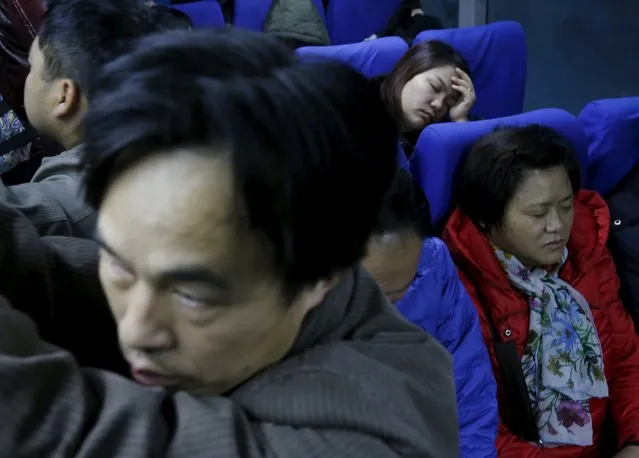
Migrant worker Lai Yongmei, 47, sleeps on a bus on her way into Beijing, China, November 16, 2015. (Photo by Kim Kyung-Hoon/Reuters)
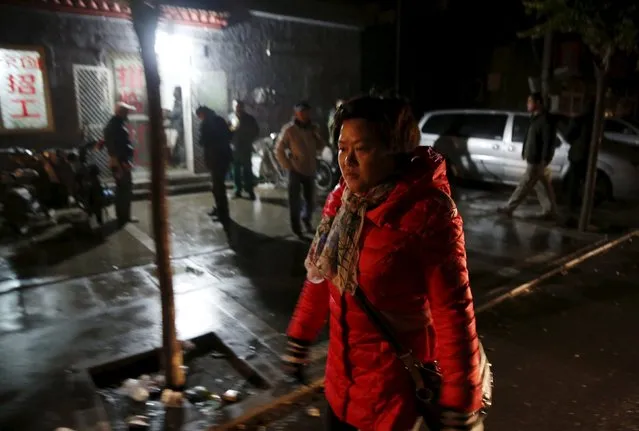
Migrant worker Lai Yongmei, 47, makes her way to catch a bus in the early morning on the outskirts of Beijing, China, November 16, 2015. (Photo by Kim Kyung-Hoon/Reuters)
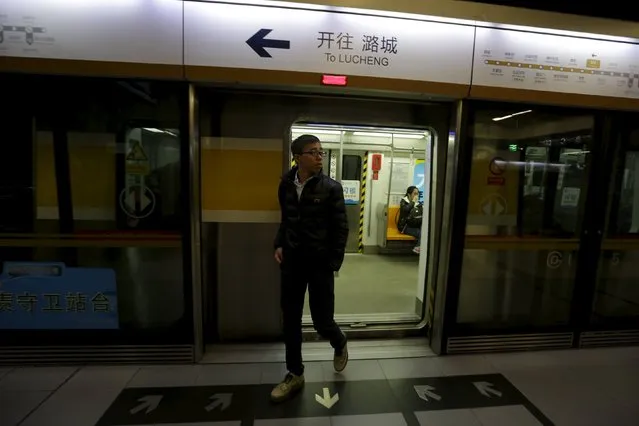
An Zi walks out from a subway car, on his way to work, in Beijing, November 12, 2015. An, a movie producer, moved to Dongsanqi village in Changping this year. His commute to work can take about 2 hours, with transportation costs topping 200 yuan a month, or about a fifth of his monthly rent. (Photo by Jason Lee/Reuters)
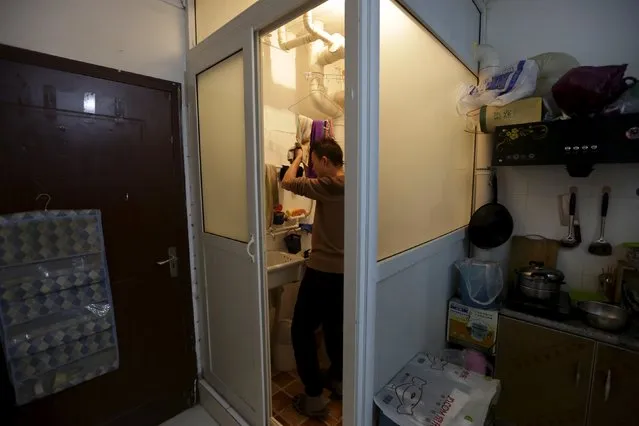
An Zi washes before he leaves for work in Changping, on the outskirt of Beijing, China, November 12, 2015. (Photo by Jason Lee/Reuters)
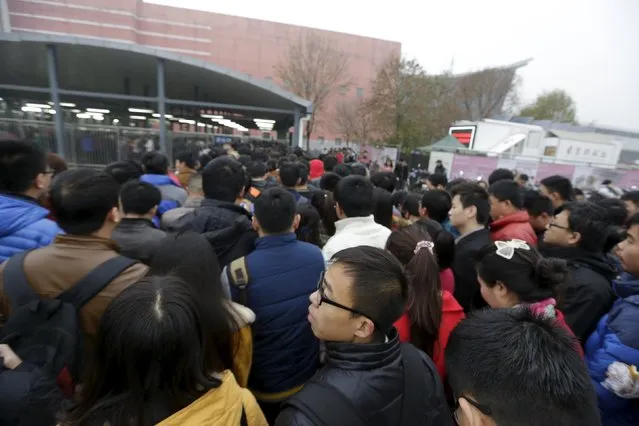
An Zi waits in a line outside a subway station on his way to work around 7:30 am in Changping district, on the outskirts of Beijing, China, November 12, 2015. (Photo by Jason Lee/Reuters)
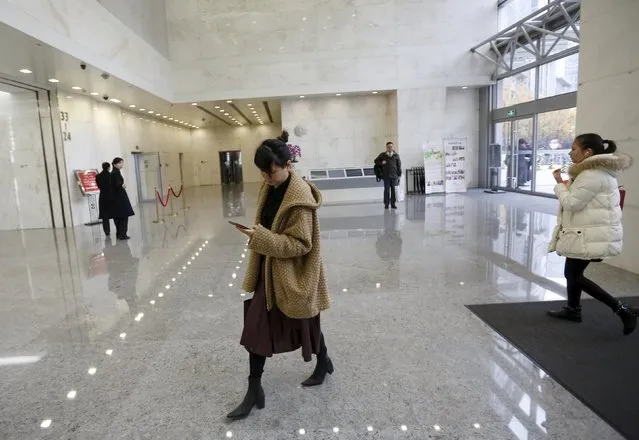
Yoko Wu uses her mobile phone as she heads to her office in Beijing, China, November 18, 2015. Yoko lives in the Beijing suburbs with her family and children. Uber, the taxi service, has become her main way to beat traffic and get work done on the road. (Photo by Kim Kyung-Hoon/Reuters)
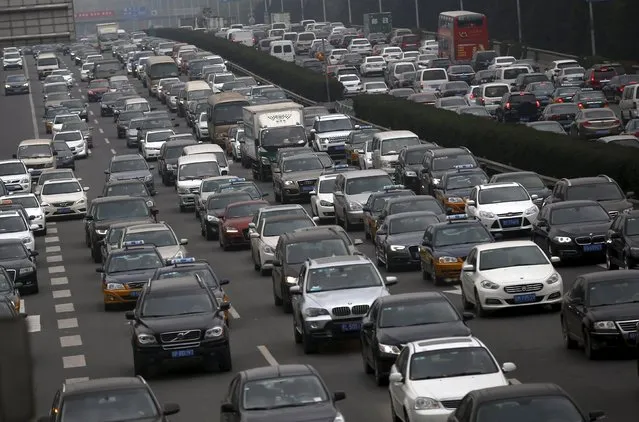
A ring road is congested with traffic in Beijing, China, November 18, 2015. (Photo by Kim Kyung-Hoon/Reuters)
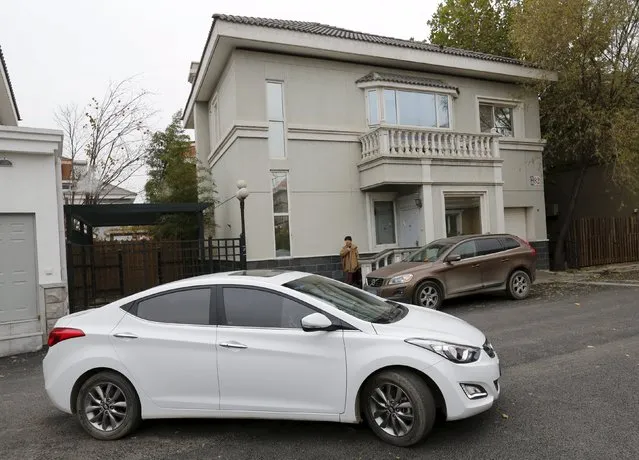
Yoko Wu walks toward an Uber taxi as she leaves from her house in Shunyi District in Beijing, China, November 18, 2015. (Photo by Kim Kyung-Hoon/Reuters)
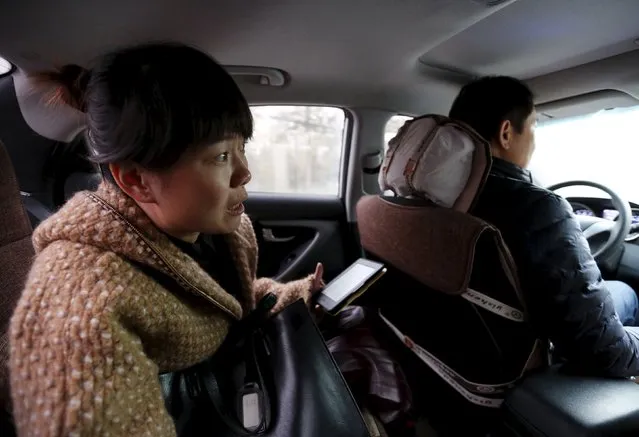
Yoko Wu instructs an Uber taxi driver en route to her office in Beijing, China, November 18, 2015. (Photo by Kim Kyung-Hoon/Reuters)
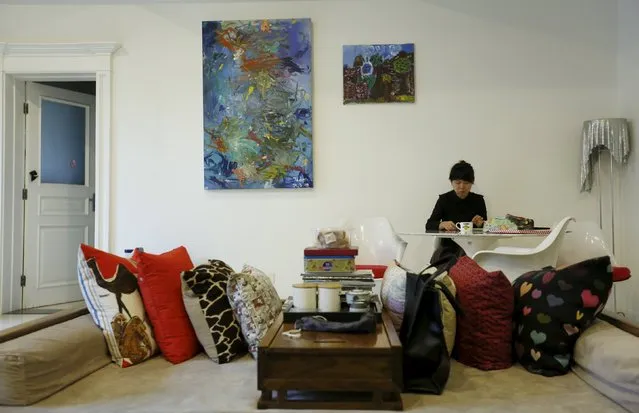
Yoko Wu eats her breakfast at her house in Shunyi District in Beijing, China, November 18, 2015. (Photo by Kim Kyung-Hoon/Reuters)
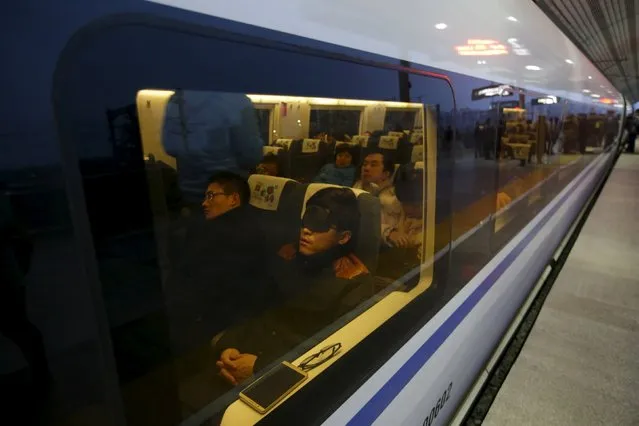
A high-speed train leaves a platform in Tianjin, China, November 18, 2015. (Photo by Jason Lee/Reuters)
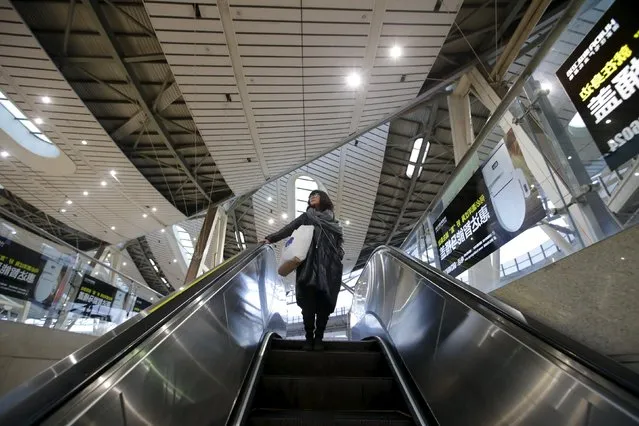
Li Nan, a makeup artist, takes an escalator on her commute into Beijing for work from Tianjin, China, November 18, 2015. (Photo by Jason Lee/Reuters)
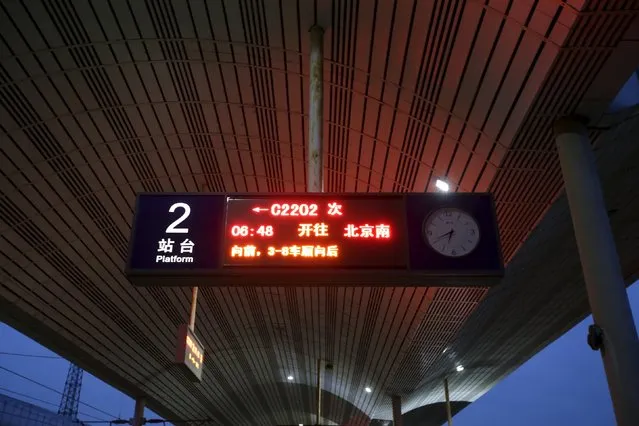
An electronic board displays information on a platform at a railway station in Tianjin, China, November 18, 2015. (Photo by Jason Lee/Reuters)
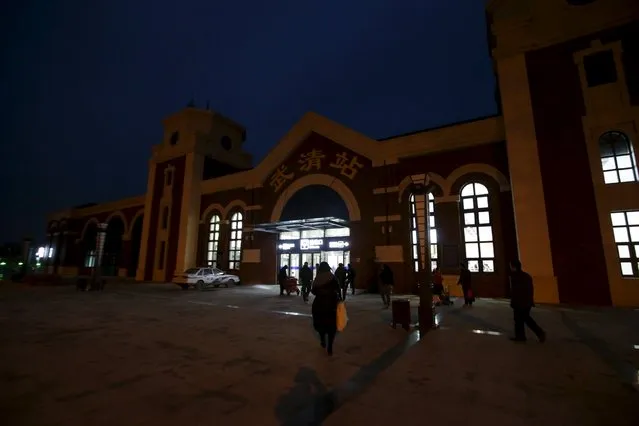
Li Nan, a makeup artist, walks into a train station as she leaves for Beijing for work from Tianjin, China, November 18, 2015. Li's commute takes 90 minutes. (Photo by Jason Lee/Reuters)
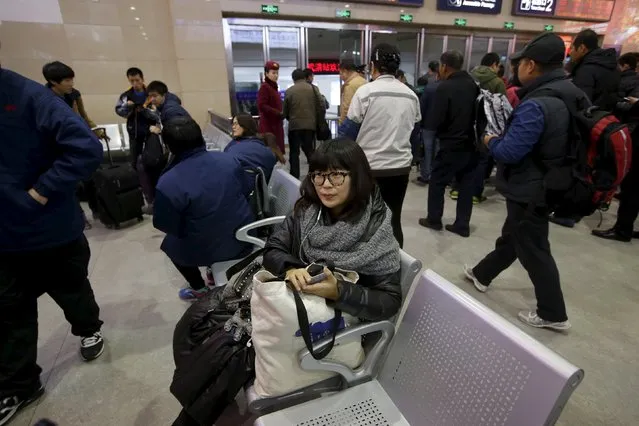
Li Nan, a makeup artist, waits at a train station on her commute into Beijing for work from Tianjin, China, November 18, 2015. (Photo by Jason Lee/Reuters)
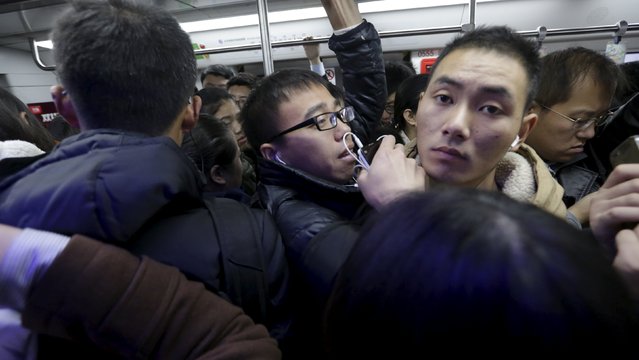
An Zi, is squashed amongst other commuters in a subway train on his way to work in Beijing, China, November 12, 2015. An, a movie producer, moved to Dongsanqi village in Changping this year. His commute to work can take about 2 hours, with transportation costs topping 200 yuan a month, or about a fifth of his monthly rent. (Photo by Jason Lee/Reuters)
28 Nov 2015 08:00:00,
post received
0 comments
